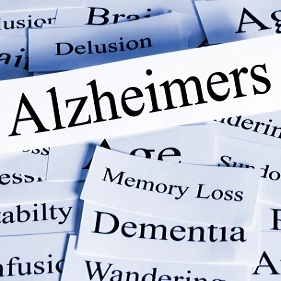In the following paragraphs I’m going to reveal:
- What does NOT work for helping Alzheimer’s
- A comprehensive natural and effective plan of support for Alzheimer’s
- The diet you should follow
- The supplements you should take
- And the exercises you can do
In a recent World Alzheimer Report, Alzheimer’s Disease International estimated that there are 35.6 million people living with dementia worldwide in 2010, increasing to 65.7 million by 2030 and 115.4 million by 2050
There are very few diseases more heartbreaking for family members than Alzheimer’s.
But it’s not all bad news…
There are many exciting results of studies showing that simple lifestyle factors, some dietary changes and the addition of common nutrients can significantly improve the independence of Alzheimer’s patients.
Before you know what you should do, it’s important to know what NOT to do. (Remember: With your health, knowledge is power)
What Does Not Work
As you know I “pull no punches” with my health care advice…
The cold hard truth is – rather than doctors getting closer to helping you they’re getting further apart.
Aricept is a commonly prescribed drug for Alzheimer’s.
Aricept does not work.
| “An independent study, conducted at the University of Birmingham, UK, reveals that a popular prescription drug for Alzheimer’s disease, Aricept, offers no real benefit to Alzheimer’s patients compared to placebo [not taking the drug].” |
And yet, the drug has been approved and heavily marketed based on findings from drug trials funded by its maker who claims the drug benefits Alzheimer’s patients in “scientifically proven ways” (more drug company shenanigans?). Alzheimer’s is predicted to affect 1 in 85 people globally by 2050.
The signs are being detected in younger and younger people.
It used to be confined to the 70-90 year old age group. Now it’s found in some people aged 50-70 years.
Since the medical system is likely to collapse financially over the next 20 years as the baby boomers become a massive drain on already failing systems you’ll not be able to rely on the medical/welfare system.
The fact is you cannot leave your health care in the hands of others.
Now is the time to make your plans to prevent and reverse brain degeneration through factors you can control like diet, exercise and supplements.
What Can You Do?
Firstly, do not waste your money on giving to charities as that money just goes to the same drug companies being fined billions for their existing frauds.
I know it sounds harsh but it’s the truth.
Here’s what you can start doing today to help your brain health:
Change your diet to a Mediterranean menu eating fish, vegetables, dark skinned fruits, nuts,seeds, beans and exclude processed foods from factories.
What about taking advantage of exciting research that shows coconut oil can help Alzheimer’s? It appears that coconut oil supplies the brain cells of Alzheimer’s sufferers with an alternative energy source – giving them the fuel they need to survive.
Coconut oil is showing promise not only to prevent Alzheimer’s but it may actually reverse it.
Coconut oil is just one of many natural things you can add to your arsenal against Alzheimer’s.
Here’s a detailed outline of the plan.
Alzheimer’s Recovery Diet and Brain Health Support Plan
You can follow a simple 3 step plan of attack focusing on proven nutrients, dietary modifications and lifestyle factors as outlined below.
1. Supplements to support a healthy brain in order of priority
(I’ve included references after each nutrient as to why it’s beneficial):
2. The Diet
This is sometimes referred to as the Hunter/Gatherer diet as it does not have any processed food.
Think about how a caveman would eat – more fruits, vegetables, clean protein , “good fats” plus nuts and seeds.
Check out our new website www.ReallyHealthyFoods.com where we post menus, meal ideas and food lists from the list below.
It will be updated over the coming weeks and so keep checking it for changes.
Your recovery food plan and to maintain ‘perfect Health’ (pH).
STOP all, starchy carbohydrates (breads, pastry, cookies, breakfast cereals, white rice, potatoes, and pasta), processed foods and milk products.
These are inflammatory foods and will make healing more difficult. Try to stick to Quinoa and the other carb alternatives shown at www.ReallyHealthyFoods.com for your health.
Eat up to 14 small portions (about the size of your fist) of fresh or frozen veggies daily (in soups, juiced, stir-fried, steamed etc) 50% raw juiced (use the pulp in soups) (Organic if possible).
Eat 3-5 portions of beans, nuts and seeds (soaked and mashed for the nuts and seeds)
Eat 5 portions dark skinned fruits, (blueberries, cherries, red grapes (especially the minimum of 2 avocados daily) etc).
Hemp, or Krill Oil and other healthy oils such as olive oil etc
Drink 6 glasses of distilled or filtered water per day with a pinch of bicarbonate of soda which improves oxygen transport.
Include 3-5 x teaspoons of Sea or Rock salt daily in food or water (no table salts).
3. Lifestyle Factors
More and more science is showing that our daily activities can have a huge impact (for better or for worse) on our health.
Here are 3 lifestyle tips for better brain health:
- Do not sit down for more than 3hrs in total per day. Lie down with legs elevated or walk.
- Exercise by rebounding on a mini-trampoline building up to 15mins x 2 times per day and walk 5-miles per day when able at a fast pace with nordic poles.
- Do not watch TV for more a few hours per day and then only your favourite documentaries but listen to the radio and talk radio is better.
End Alzheimer’s Recovery Diet and Brain Health Support Plan
So there you have it, a natural Alzheimer’s Recovery Diet and Brain Health Support Plan.
Remember prevention is better than cure – you don’t have to wait until you start having any symptoms to apply this information.
You can start implementing some of these recommendations today.



